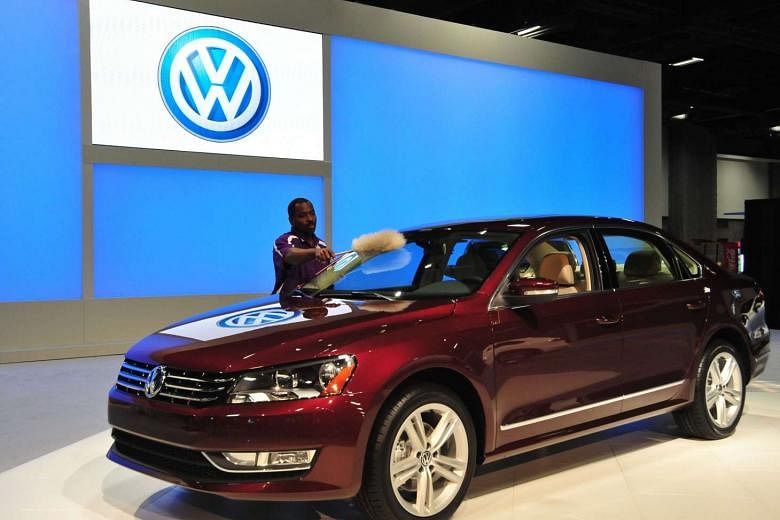NEW YORK (AFP) - Volkswagen's use of emissions cheating devices on its larger 3.0 liter diesel engine cars extends back five years earlier than originally reported, US regulators said on Friday (Nov 20), deepening the crisis at the German auto giant.
The Environmental Protection Agency said that officials from the Volkswagen group informed it that technology the EPA says is an illegal "defeat device" was on all model years for the larger engines since 2009, rather than just the 201 to 2016 models, as originally reported.
That matches the timeline for use of the devices, software that masks high levels of poison gas emissions during tests, on the smaller 2.0 litre Volkswagen engines - the original source of the burgeoning scandal that has overwhelmed the company.
The new report expanded the number of VW, Audi and Porsche 3.0 liter luxury cars involved in the problem to about 85,000 in the United States alone, compared to 10,000 in initial estimates.
While Volkswagen has admitted that the illegal devices were on its smaller cars, it has not conceded that they are on the larger engines, despite the EPA's allegations.
The US agency said in a statement that in a meeting yesterday, "VW and Audi officials told EPA that the issues EPA identified in the November 2nd NOV (notice of violation) extend to all 3.0 liter diesel engines from model years 2009 through 2016."
EPA said it and the California state environmental agency, also involved in the probe, would further investigate, heaping more pressure on embattled VW.
Volkswagen is struggling to cope with the biggest crisis of its history over its admission in September that it had fitted more than 11 million vehicles worldwide with devices designed to cheat pollution tests.
The software devices turn on pollution controls when the car is undergoing testing, and off when it is back on the road, allowing it to spew out harmful levels of nitrogen oxide.
The revelations have sparked investigations in several countries and the company is facing potentially tens of billions of dollars in fines and compensation to vehicle owners.
In addition, VW was shown earlier this month to have also understated carbon emissions for 800,000 vehicles. The company estimated this issue alone could cost it two billion euros ($2.1 billion).
The scandal, which first broke in August, has sent the shares of the world's second largest automaker plummeting nearly 40 percent.
Ratings agencies have slashed its credit rating, with Moody's saying on November 4 that the company's reputation and earnings were at risk from the growing scandal.
Moody's said the problems "pose additional risk to Volkswagen's reputation, future sales and cash... They also suggest serious internal control and governance issues, which may be more widely spread than believed initially."
Earlier Friday, chief executive Matthias Mueller said Volkswagen will cut investments by one billion euros in 2016, as the group scaled back spending to cope with the emissions scandal.
"We will examine all our investments and all our spending. Everything that is not necessary will be dropped or postponed," he said.
Nevertheless, Mueller said the company "will in no case make savings at the expense of our future," as he promised that the carmaker will allocate an extra 100 million euros in 2016 on the development of hybrid and electric engines.

